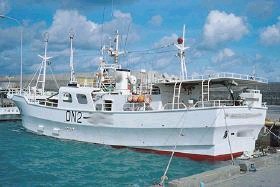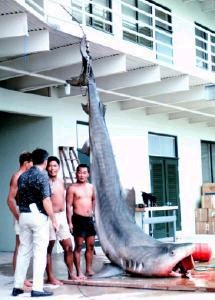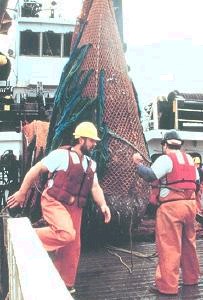|
"Without immediate action," Hirshfield said, "fishery managers will not have anything left to manage - and fishermen will have nothing left to catch. For years, the conservation community and responsible fishermen have argued that the ocean is not limitless, and have called for actions to prevent overfishing, reduce wasted catch, and limit the use of destructive fishing gear."
This year, Oceana started two campaigns to stop harmful fishing practices. The Stop DirtyFishing campaign is working to eliminate the approximate 44 billion pounds of fish – an amount equal to 25 percent of the world catch – that are wasted in the course of commercial fishing.
The Stop Bottom Trawling campaign is working to prohibit the use of bottom trawling fishing gear, a method of fishing that Hirshfield calls "the world’s damaging," because it causes "unselective and systematic destruction of the ocean."
Myers and Worm sent their findings to many of the top fisheries scientists in the world for review. They found acceptance of the overall pattern of rapid depletion of fish populations, but when it came to the current status of individual species, especially tuna, says Myers, some fisheries managers "find it very hard to accept."
Myers has dealt with this type of denial when he was a fisheries biologist with the Canadian Department of Fisheries and Oceans in Newfoundland during the 1980s. He fought to save the Atlantic cod, which were declared and endangered species by the Canadian government last week.
"No one understood how fast the decline happened at the end - it was only a couple of years," says Myers. "The quotas had been too high. They refused to slow down because they had seen lots of little fish coming in - a good year class. The little fish were caught and discarded and there was no future."
"This is extremely troubling news for anyone who cares
about the health of the oceans," said Dr. Randy Kochevar,
science communications manager at the Monterey Bay
Aquarium and a principal investigator with the Tagging
of Pacific Pelagics (TOPP) research project. TOPP is a
collaboration among scientists from around the world to
understand the migration patterns of large open ocean
animals in the North Pacific Ocean.
"The magnitude of the threat is startling," Kochevar said.
"Even if the authors' numbers are off by as much as 50 percent,
this is a big, big problem. The trends they've identified have
profound consequences for the future of ocean life."
|



